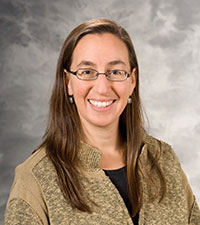The Department of Family Medicine and Community Health (DFMCH) has taken a bold step to elevate faculty support by establishing the Office of Faculty Development and Promotions. This initiative, led by inaugural Vice Chair Dr. Sarina Schrager, reflects a growing recognition of the need to sustain and empower faculty throughout their careers.

Sarina Schrager, MD, MS
“This is a significant step in centralizing and enhancing support,” said Schrager, who has been a driving force in faculty development since 2014. Her leadership has been especially impactful in guiding faculty through the clinical health sciences track, which requires promotion, and the clinician teacher track, where promotion is optional but strongly encouraged.
The newly created office consolidates a range of efforts under one umbrella. It offers structured programming for junior faculty to explore their academic and clinical interests, including continuing medical education, grand rounds, and faculty development days. These initiatives are designed to support both clinical excellence and teaching effectiveness.
Structured learning opportunities span curriculum design, feedback delivery, research, writing, and presentation skills. But the vision goes beyond skill-building. Schrager emphasizes holistic professional development—supporting faculty in time management, well-being, and finding purpose and joy in their work as they transition from early to senior stages of their careers. Mentorship is another cornerstone, with a strong emphasis on cultivating effective mentors across the department.
This approach aligns with a broader shift in academic medicine. Recent research highlights the importance of faculty development not just for individual success but for institutional vitality. A 2024 JAMA article advocates for a coaching-oriented model that fosters creativity, psychological safety, and innovation among early-career faculty. Similarly, the Association of American Medical Colleges underscores that comprehensive faculty development—encompassing capability, responsibility, and community—is essential for sustaining vibrant academic environments.
Schrager credits DFMCH Chair Dr. David Rakel for championing the creation of this role. “This position reflects our department’s commitment to the health and well-being of our faculty,” she said.
Reflecting on her transition into the role, Schrager shared, “I was stepping away from my primary care practice and it felt like a logical fit to step into this role. I have enjoyed continuing to reinvent myself at DFMCH and I was ready for a new challenge.” Her passion is unmistakable: “We have great people working for us, and anything I can do to help them move their work forward is a gift for me and them.”
The creation of the Office of Faculty Development and Promotions is a testament to DFMCH’s enduring commitment to nurturing its faculty, ensuring they thrive as educators, clinicians, and leaders in academic medicine.
Published: June 2025
